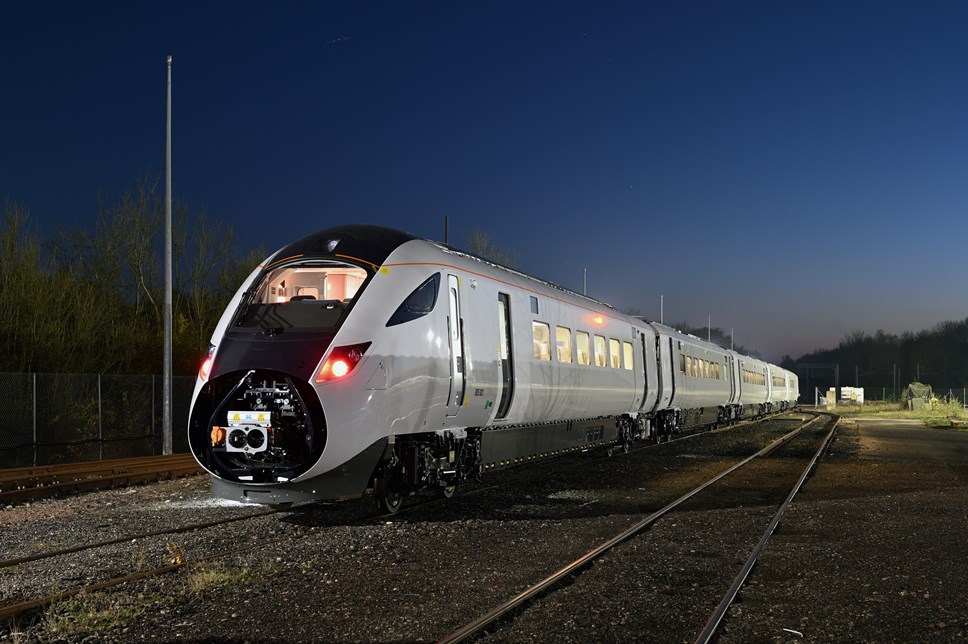
Start of dynamic testing marks another milestone for Avanti West Coast’s new fleet
The first of Avanti West Coast's fleet of new trains leaves Hitachi Rail's factory to begin a two month programme of dynamic testing.
- Key landmark achieved as the first newly built Avanti West Coast train leaves Hitachi Rail’s Newton Aycliffe factory
- Dynamic testing to take place at Network Rail’s Rail Innovation and Development Centre
- New fleet on course to enter service on the West Coast Main Line in 2023
The first of Avanti West Coast’s new fleet of trains has begun dynamic testing at Network Rail’s Rail Innovation and Development Centre (RIDC) in Leicestershire.
In a major milestone for the £350m project, the Class 805 bi-mode train, which was built at Hitachi Rail’s Newton Aycliffe factory in North East England, will travel under its own power at speed for the very first time.
Unit number 805001, still sporting its base livery, is expected to remain at RIDC for most of November, before being joined by a second train (805003) to undergo further testing. Both trains will then move to Oxley depot (in the West Midlands) to begin an intense period of main line testing.
The new fleet will be a mix of ten seven-carriage electric trains and 13 five-carriage bi-mode trains, with the ability to switch seamlessly between electric and diesel power. The electric trains (Class 807) will operate between London, the West Midlands and Liverpool while the bi-mode version will be focused on the London to North Wales route. The new fleet is on course to enter service on the West Coast Main Line in 2023.
Liam Hockings, New Fleet Introduction Manager at Avanti West Coast, said: “The new train looks amazing and we’re looking forward to putting it through its paces over the coming months.
“These new Hitachi trains will help deliver a step change in the travelling experience of our customers and colleagues, along with a much greener and quieter operation.”
The new Hitachi trains offer more space and a quieter journey compared to the diesel-only Voyager trains they replace. This will lead to a 61 percent reduction in carbon emissions. Customers will also enjoy better and more reliable free Wi-Fi, at-seat wireless charging for electronic devices, plug sockets and USB slots; a brand-new catering offer and a real-time passenger information system that can advise customers of connecting rail services.
